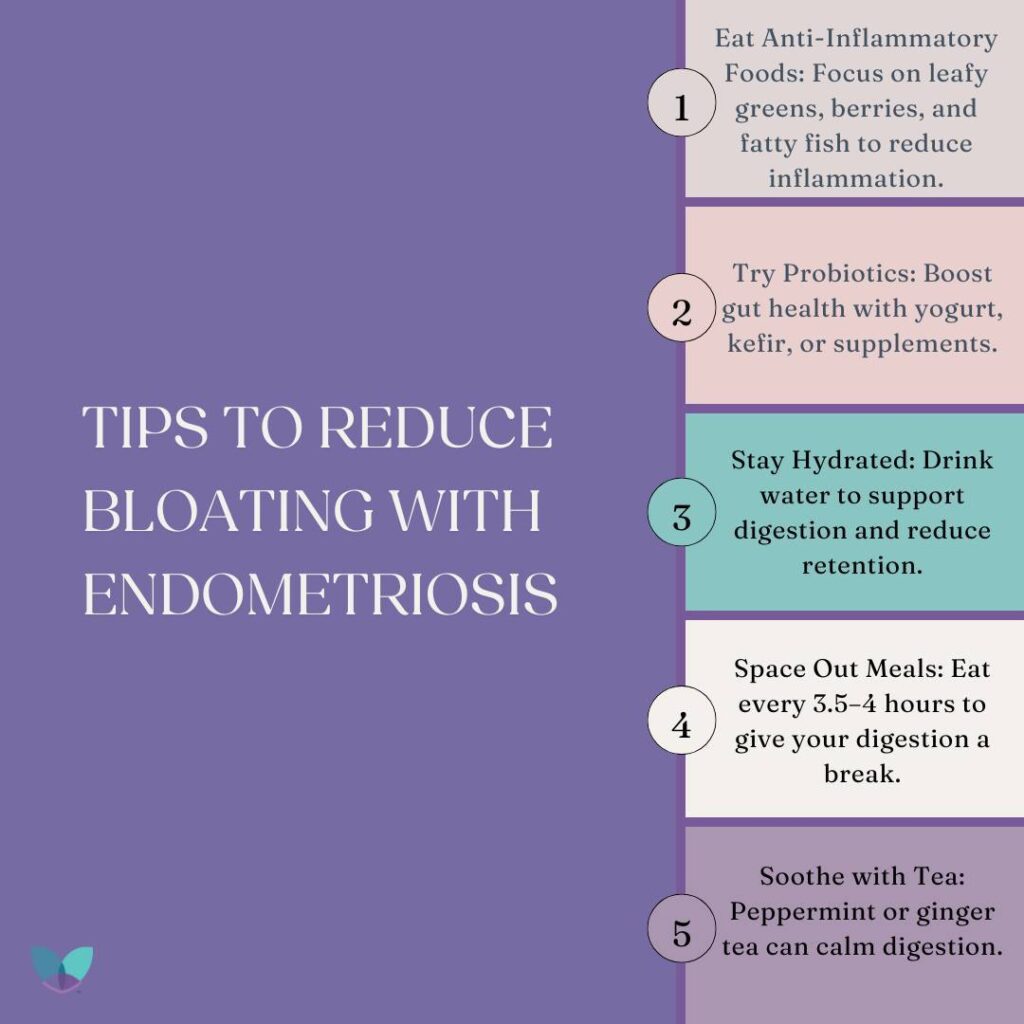Endometriosis comes with a wide range of symptoms, and one of the most frustrating is the painful bloating known as “endo belly.” This condition can cause severe abdominal swelling, discomfort, and digestive issues. Understanding what endo belly is and how to manage it can help those suffering from endometriosis feel more in control of their symptoms.
What is Endo Belly?
A common endometriosis symptom is bloating, often referred to as “endo belly.” Unlike the typical bloating that many experience around their period, endo belly is often severe, prolonged, and unpredictable. According to the NIH, endo belly can cause significant pain and discomfort, similar to those with irritable bowel syndrome (IBS). Many individuals with endometriosis find that their abdomen expands so much that they struggle to fit into their usual clothing by the end of the day. This is due to the inflammatory nature of endometriosis and its impact on digestion and fluid retention.

How to Reduce Bloating with Endo Belly
While bloating is a common and persistent issue for those with endometriosis, there are ways to help manage and reduce bloating effectively.
Eat an Anti-Inflammatory Diet
Since endometriosis is an inflammatory condition, reducing inflammation through diet can help minimize symptoms. Focus on foods that are rich in anti-inflammatory properties, such as:
- Leafy greens (kale, spinach, arugula)
- Berries (blueberries, raspberries, strawberries)
- Fatty fish (salmon, sardines, mackerel)
For more meal ideas, download our Edible ENDOrsements cookbook for recipes designed to support those with endometriosis.
Incorporate Probiotics
Improving gut health can play a significant role in managing endo belly. Probiotics help balance gut bacteria and improve digestion, reducing bloating and discomfort. Try incorporating:
- Greek yogurt or skyr
- Kefir
- Probiotic supplements
Stay Hydrated
Drinking enough water throughout the day supports digestion, reduces water retention, and helps flush out toxins that contribute to inflammation. Aim to drink the recommended daily amount of water and adjust based on your body’s needs.
Space Out Meals
Eating smaller meals at regular intervals can help your digestive system process food more efficiently. Aim to eat every 3.5 to 4 hours to avoid overwhelming your digestive system and prevent excessive bloating.
Soothe with Tea
Certain teas can be particularly helpful in calming digestive distress and reducing bloating. Some of the best options include:
- Peppermint tea – helps relax the digestive tract and relieve gas.
- Ginger tea – known for its anti-inflammatory properties and ability to ease nausea and bloating.
Managing Endo Belly for Better Well-Being
Although bloating is a common endometriosis symptom, it doesn’t have to be something you suffer through without relief. By making mindful dietary choices, staying hydrated, and incorporating gut-friendly habits, you can help reduce bloating and improve your overall quality of life.
If bloating and other endometriosis symptoms are severely impacting your daily life, it may be time to seek specialized care. At PRM, we offer comprehensive treatment plans to help manage endometriosis and improve your well-being.
